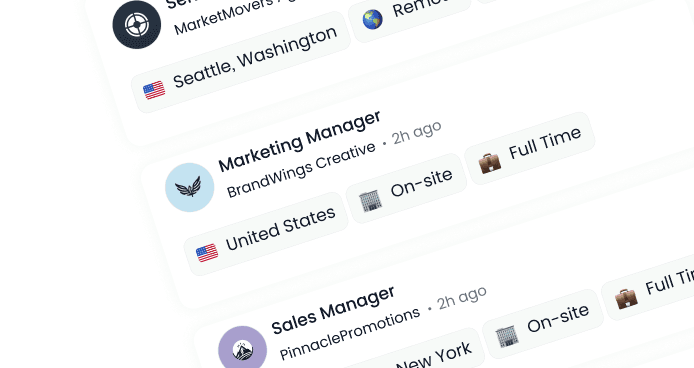What Your Candidate’s Online Presence Really Says About Them
Published:
August 14, 2025
All
AI Recruitment
Recruiting Tips
Workforce Planning
Before you hire them, you’ve already met them—online.
Introduction
One of the most important aspects when hiring a person is checking their digital footprint. From ensuring they are a cultural fit to evaluating their people skills to uncovering many other facets of a candidate’s professional career, their online presence reveals a lot.
To show how much emphasis is placed on online presence by recruitment managers, a study was done in 2023. The report found that over 70% of employers screen their prospective candidates’ social media before deciding to hire.
If you’re wondering how, you can ethically, efficiently, and strategically assess a candidate’s online presence without wasting time or crossing lines; this blog is for you.
The Importance of Online Portfolios and Hiring
Given how deeply engrained the use of AI has become, creating an extremely professional and eye-candy resume isn’t a big deal. So, it shouldn’t come as a surprise that resumes and cover letters might not give a clear picture of a candidate. That is where online portfolios, whether from Facebook, Twitter, and LinkedIn profiles, go a long way in giving a better picture of a person when it comes to hiring.
A candidate’s professional social media and online portfolios give insight into:
How do they express ideas
How involved they are in their industry
How proactive they are in building their brand
This is not about “spying.” It’s about looking at what’s already public to make smarter hiring decisions.
Online Portfolios Are the New Resume
For creative, tech, and digital roles especially, online portfolios and hiring now go hand in hand. A well-built portfolio site isn’t just a showcase—it’s proof of initiative, design thinking, and commitment to craft.
If a candidate’s portfolio:
Is well-structured and visually consistent
Includes real-world results or KPIs
Demonstrates continuous improvement
That’s often more telling than what’s on their PDF resume.
What Employers Should Look for Online
When it comes to social media screening, many employers fall into one of two traps: overreaching into personal life or not checking at all. The sweet spot lies in focusing on job-related signals only.
What’s Fair Game:
LinkedIn activity: Are they sharing relevant articles or just lurking?
Portfolio sites: Do they maintain a blog or upload work samples regularly?
Professional Twitter/X posts: Do they comment constructively on industry trends?
Public GitHub, Behance, or Medium: Do their contributions reflect initiative and skill?
What to Skip:
Anything behind a privacy wall (Instagram Stories, private Facebook)
Personal lifestyle content unrelated to the job
Political or religious views—unless they violate your company’s clear public values
The goal is to assess professional alignment, not personality preferences.
Identifying Red Flags and Green Flags
According to hiring experts, certain patterns online can either strengthen or weaken a candidate’s profile.
Red Flags:
Discrepancies between resumes and online profiles
Aggressive or inappropriate public comments
Negativity towards previous employers
Poor grammar or unprofessional communication on LinkedIn
Green Flags:
Thoughtful articles or posts related to the industry
Positive, respectful engagement with others
Clear articulation of professional goals
Side projects or volunteer work that align with company values
Remember: How a person behaves online is often how they’ll behave in the workplace.
Efficient Candidate Research Tips
If you're managing a busy recruitment cycle, online vetting can feel overwhelming. Here’s how to do it fast, ethically, and without losing focus:
Start with LinkedIn
It’s one of the most widely used professional platforms and often the easiest to verify.
Scan for:
Consistency with the resume
Endorsements and testimonials
Engagement with relevant content
Keyword to track: "LinkedIn profile tips for employers"
Search Their Name + Profession
For example, let’s take a fictitious person – Jane Doe. If you Google their name and profession like so Jane Doe full stack developer, you can get links to their online portfolios, blogs, GitHub presence and other information.
Check for Role-Relevant Content
Instead of looking for reasons not to hire someone, look for reasons to invite them in:
Do they contribute to open-source projects?
Have they written or spoken publicly about your industry?
Are they mentoring or part of professional groups?
These are green lights worth noticing.

Closing the Gap with Video Resumes
One of the most efficient ways to bridge the gap between a resume and a full interview is through a video resume. You get a feel for:
The candidate’s tone and presence
Their communication skills
Their enthusiasm and clarity
This is where platforms like DigitalHire come in. You can watch structured video interviews and review optimized candidate profiles, helping you spot top candidates faster, with fewer blind spots.
In Conclusion
As we reach the end of our blog, let us do a quick recap of what we have covered regarding what your candidate's online presence really says about them. It is obvious that not all can be revealed by what’s on paper or a PDF. In order to get a better understanding of a person, their online presence goes a long way. That is the reason why the majority of employers carry out online social media screening before making a hiring decision.
From getting an in-depth understanding of who the person is to how they think and if they will be a good cultural fit in your team, much can be revealed by looking through their professional and public information.
Want to go beyond paper and digital text? The next big thing is video resumes. You can start reviewing candidates with tools like DigitalHire. It’s a smarter, faster way to connect with people, not just paper.
FREE JOB POST
Looking to fill a position quickly? Post your job for free and reach top talent today!




